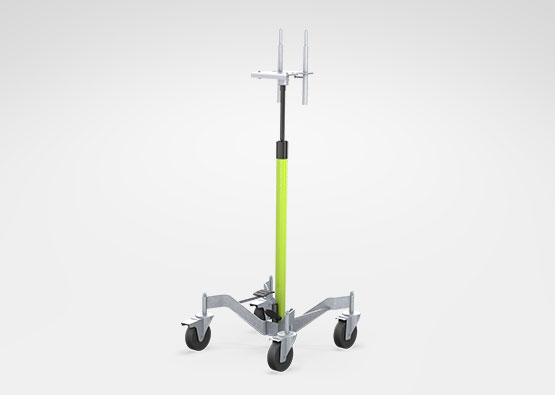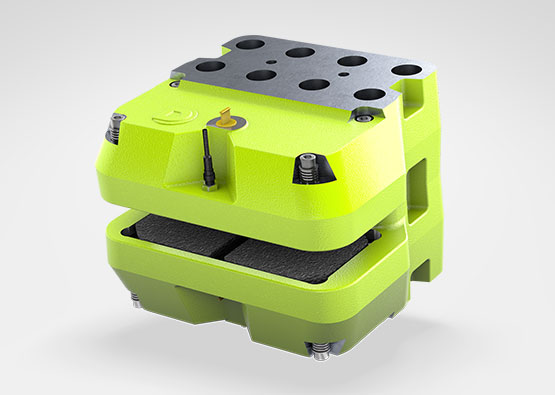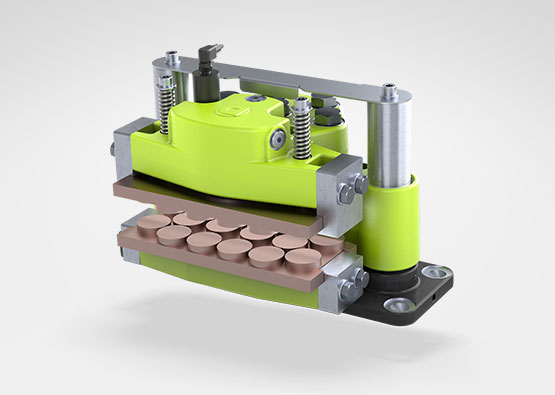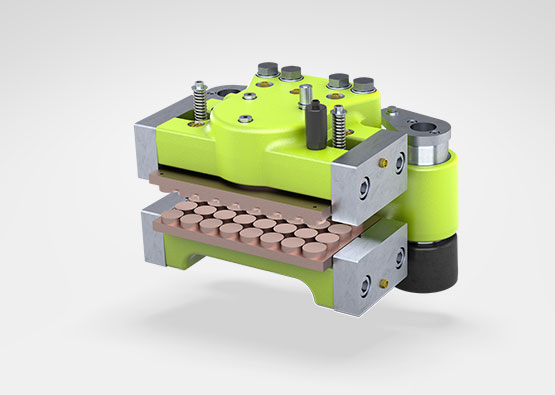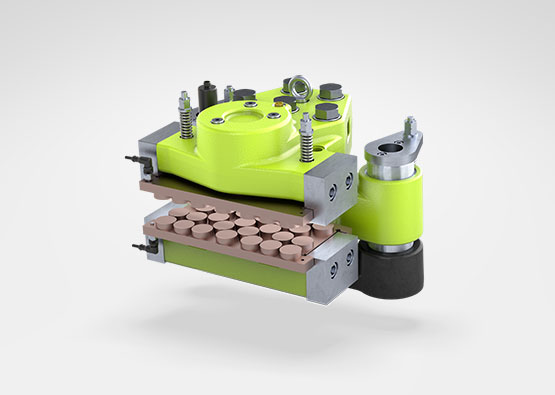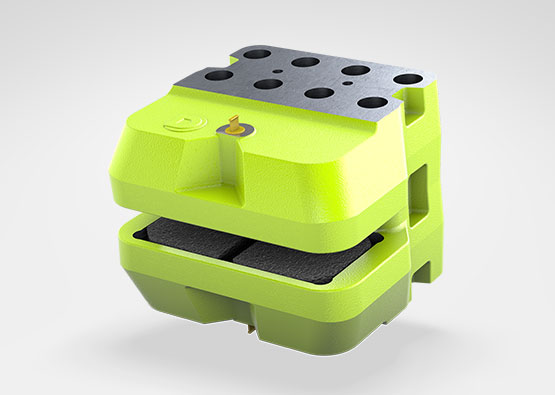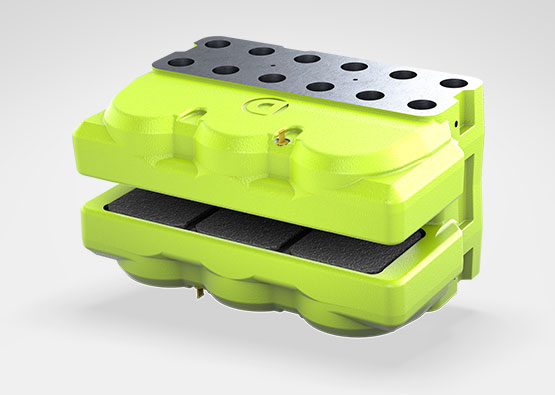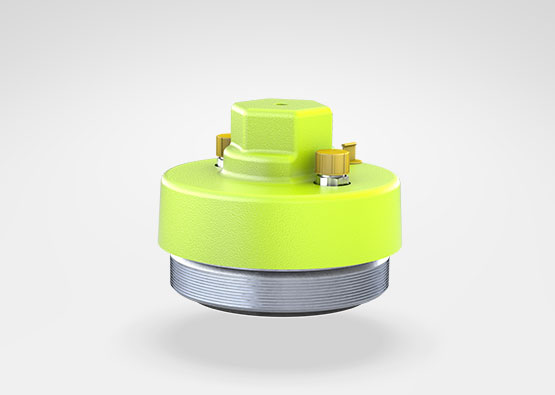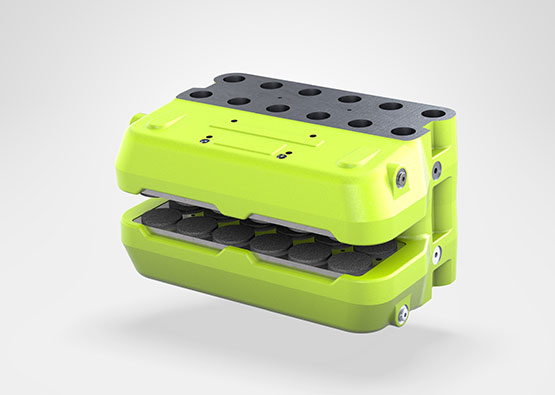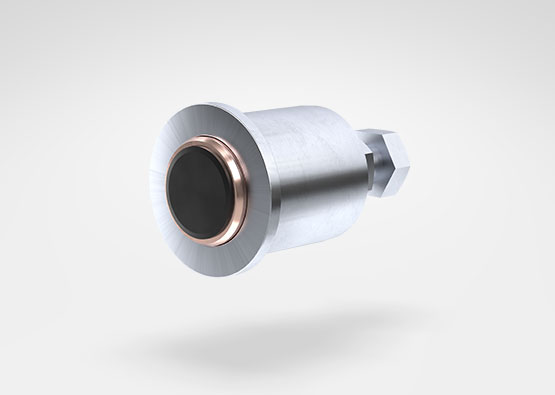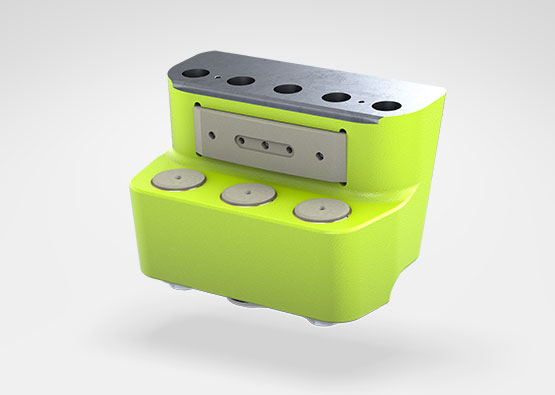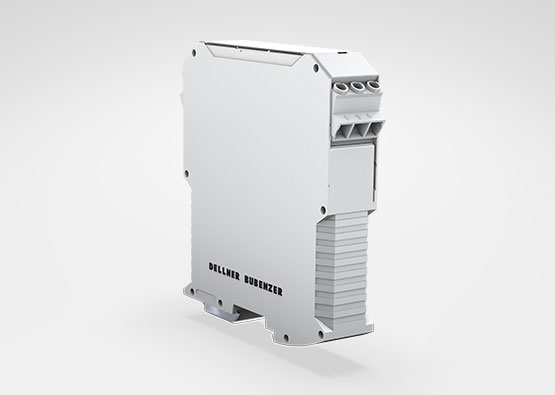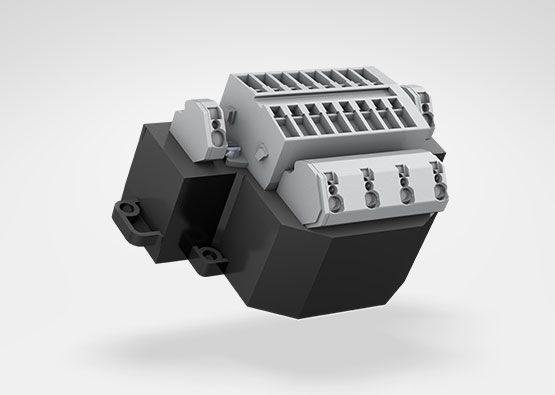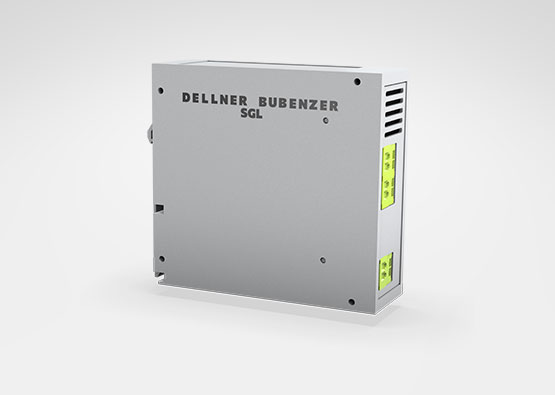JHS-RBA-SFRA12-120
- Braking Force:
- Up to 104 kN
Due to its high capacity, our SFRA brake is mainly used as a rotor brake in wind turbines. It is particularly suitable for applications with a high duty cycle.
- Active caliper brake, ready for operation, hydraulically applied, spring released
- No Failsafe function
- Sintered Linings
- Horiztonal Compenstation +/- 5mm
- Support for direct gear box mounting
- Suitable for damp, dusty and corrosive working environments
- Min/Max working temperature - 40°C / + 60°C
- Limit switch release control
- Limit switch wear control
- Connects to Hydraulic Power Units
- Seals for special fluids
- Sensors for remote monitoring:
- Temperature Monitoring
- Wear Sensors
- Release / Air Gap
Additional PRODUCTS
A hydraulic active rotor brake with a braking force of 44 kN that’s been specially developed for use in damp, dusty and corrosive working environments
Due to its high capacity, our SFRA brake is mainly used as a rotor brake in wind turbines. It is particularly suitable for applications with a high duty cycle.
Due to its high capacity, our SFRA brake is mainly used as a rotor brake in wind turbines. It is particularly suitable for applications with a high duty cycle.
A hydraulic active yaw brake with GL Type Certification and braking force of 620 kN.
A passive yaw sliding bearing with a robust yet simple design that guarantees optimum performance throughout the life of the turbine.
A passive yaw sliding bearing with a robust yet simple design that guarantees optimum performance throughout the life of the turbine.
Half Wave & Full Wave rectifiers for Din rail or panel mounted rectification.
Din rail mounted unit switches from bridge rectification to half-wave rectification


